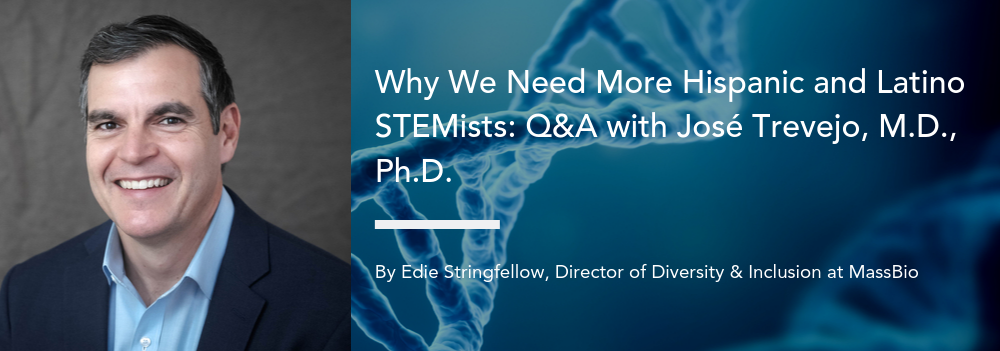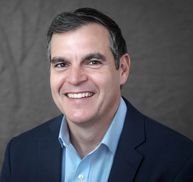
Hispanic Heritage Month, September 15 – October 15, celebrates the Americans of Mexican, Spanish, Caribbean, and Central and South American descent. In 2019, Hispanics and Latinos make up about 18% of the U.S. population and it is projected that this will increase to 30% by 2050. But, despite this rapid growth, they are in small numbers when it comes to STEM. According to a Nature Biotechnology survey done in collaboration with BIO, Hispanics/Latinos compose 6.1% of the biotech workforce, with 3.8% in management positions, and 1.7% at the C-Suite/Board of Directors level.
To learn more about this disparity, I spoke with José Trevejo, M.D., CEO and Co-Founder, SmartPharm Therapeutics about his roots, his views on the impact of low representation, and other causes for concern.
Tell us about your background and important experiences or people that helped to shape you and guide your direction into medicine.
I lived as a child in West Africa then moved to Southern California at a young age where I was always immersed in a diverse culture. Therefore, I have a strong belief that diversity is important for success in all facets of life, but especially in science. My recently deceased Godmother, JoAnn Vasquez was an inspiration to me as a child and adult. She was a former nun, the first in our family to obtain her PhD, and became the first woman Dean and Vice-Provost at Santa Clara University. She always emphasized education, but was a generous mentor to me and many others. Dr. Lloyd Old, was a scientific mentor to me when I was a graduate student. He discovered the human cytokine TNF (the basis for blockbuster drugs like Humira that treat arthritis) and was a leader and proponent of immuno-oncology way before it became recognized as an effective approach to cancer therapy. He had a passion and excitement for science, but, more importantly, he cared about people and spent time understanding their stories.
What does your Hispanic heritage mean to you?
Hispanic is a very broad term and represents a large variety of ethnic groups. However, the Mexican philosopher José Vasconcelos coined the term “la raza cósmica,” or, “the cosmic race,” because he believed that the Latin people were a mixing of all races including Asian, Caucasian, and African, and therefore represented the future race of the world. I would like to think that being part of la raza cósmica, represents the bringing together of a great diversity of ethnicities and cultures into a rich tapestry that will take us toward greater mutual tolerance, harmony, and progress as a society. These are also the ideals of the American dream, where our diversity of background and opinions can make us stronger as a whole if we appreciate them.
What is the biggest health challenge in the Hispanic community that the life sciences industry can immediately address?
Globally, infectious diseases still remain the greatest causes of death and suffering. Mosquito-borne diseases, respiratory diseases, and infectious diarrheal diseases among others are responsible for many of these issues. Therefore, the continued development of anti-infectives and vaccines are critical, as well as ways to incentivize industry to develop these approaches. In the United States, diabetes and metabolic disorders are becoming huge issues in many communities, but especially the Latino/Hispanic community. Further development of preventative measures and affordable treatments for diabetes are important.
How are you investing, supporting, or nurturing a diverse STEM pipeline for the future STEM workforce?
Firstly, by supporting a culture of diversity not just with respect to gender and ethnicity, but also in being open to the best ideas and approaches to solve problems. If this is part of the fabric of innovative companies, and you can show increased success, then this will enhance the understanding that diversity isn’t just a mantra but a recipe for achievement. I have also spent time supporting and volunteering to educate young children about STEM careers and approaches. This is based on the belief that it is important to support STEM education early in school and enable young children to realize that there are great paths to success that result from working hard at math and science. Thus, it is important for young children to not only see role models in the general media of athletes and entertainers, but to see that science geeks, like myself, can have exciting career trajectories. As our company grows, we will be supporting early STEM education efforts in the local Boston communities.
It is critical that our future STEMists join the life sciences in greater numbers to fuel and sustain the talent pipeline, otherwise we could jeopardize our competitive edge in the global marketplace. We need to train more Latino science teachers to serve as role models and to inform their students about career opportunities in STEM. We must remove the barriers that prevent all underrepresented populations from pursuing careers in the life sciences industry. And, we must do a better job at removing those barriers to better support our rapidly increasing Hispanic population.
What is your organization doing to be the change agent for a more inclusive culture in biotech? Share your story with us!
 As CEO of SmartPharm Therapeutics, Dr. José Trevejo brings his experience and passion for leading research and development teams in the advancement of novel therapeutics for serious diseases. Before joining SmartPharm as CEO, Dr. Trevejo served as Vice President, Clinical Development at Cyclerion Therapeutics where he helped advance a diverse clinical pipeline in rare diseases such as sickle cell anemia. Dr. Trevejo joined Ironwood/Cyclerion from Visterra, where he was a member of the Executive Team and lead the pre-clinical and clinical development of novel biologics.
As CEO of SmartPharm Therapeutics, Dr. José Trevejo brings his experience and passion for leading research and development teams in the advancement of novel therapeutics for serious diseases. Before joining SmartPharm as CEO, Dr. Trevejo served as Vice President, Clinical Development at Cyclerion Therapeutics where he helped advance a diverse clinical pipeline in rare diseases such as sickle cell anemia. Dr. Trevejo joined Ironwood/Cyclerion from Visterra, where he was a member of the Executive Team and lead the pre-clinical and clinical development of novel biologics.
While at Visterra he oversaw the transition to a clinical stage company as well as helped to secure a $215 million DHHS award to support development of a novel treatment for influenza. Prior to Visterra, he held clinical development leadership positions at Genentech and Vertex Pharmaceuticals. Before entering the biotechnology industry, he served as Instructor in Medicine at Harvard Medical School and was a Principal Biomedical Scientist at the Draper Laboratory working on novel diagnostics for tuberculosis and other infectious diseases. Dr. Trevejo completed his clinical training at BWH/BIDMC/Harvard Medical School and earned his M.D. and Ph.D. from the Tri-Institutional MD-PhD program at Cornell-Rockefeller-Sloan Kettering in New York.